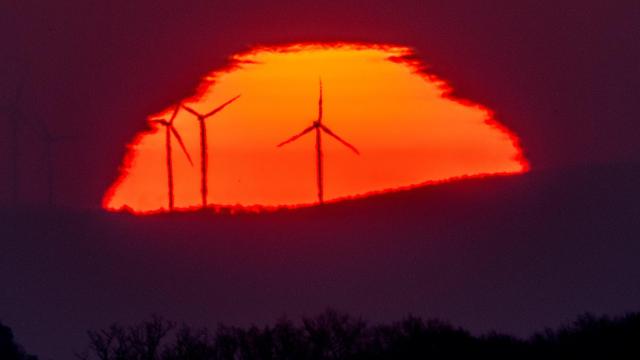In order to avoid the worst impacts of climate change, the world needs to make a serious U-turn over the next three years to curb our emissions, a stark new report finds. It’s possible to do so, concludes the report, released Monday from the Intergovernmental Panel on Climate Change — but only with serious, immediate, and sustained action across all facets of society.
And we have very little wiggle room when it comes to our addiction to oil, gas, and coal. The amount of fossil fuel infrastructure that currently exists or is planned worldwide is enough to push us into levels of warming that are over the goals set out in the Paris Agreement, the report finds.
“It’s now or never, if we want to limit global warming to 1.5°C,” IPCC Working Group III co-chair Jim Skea said in a statement. “Without immediate and deep emissions reductions across all sectors, it will be impossible.”
What’s in the IPCC Report
Every six to seven years, hundreds of scientists from around the world gather to review tens of thousands of scientific studies on climate change, releasing their overall findings in three segments that shape climate knowledge and guide policy around the world; this is the sixth version of this process. The latest first segment, on the physical science behind climate change, was released last summer, finding that the world is on track to exceed the Paris Agreement’s minimum warming limit earlier than expected, with some extremely serious results. The second outlined how climate change is changing and will change on ecosystems, wildlife, and human society, and came out at the tail end of February.
Today’s instalment now deals with what to actually do about all the grim findings laid out in the other two reports — in other words, assessing the chance of fixing how fucked we are. This particular segment is especially crucial because of the timing: The next version of the IPCC report will likely come out later this decade, after some crucial milestones for reducing our emissions have already passed. If any report is going to be influential to getting the world’s arse in gear, it’s this one.
Necessary Actions
It’s still possible for the world to turn things around, the report finds — and there are a few positive signs that we’re reversing course, as the rate of growth of global greenhouse gas emissions did slow down in the last decade. But the call to action is also as urgent as it’s ever been.
The Paris Agreement set out a minimum goal of limiting warming to 2 degrees Celsius, with a stretch goal of limiting emissions to 1.5 degrees Celsius. To stay below the 1.5 degree line, this report finds, global greenhouse gas emissions need to peak by 2025 at the latest and be down by 43% by 2030, an almost impossibly tall order. Thanks to the amount of emissions we’ve already put into the atmosphere, we’re almost certainly going to blow past that 1.5 degree mark in the next few decades, but reaching these targets can help us bend the curve back down to more manageable levels.
Early retirements or decreased utilization of energy-related fossil fuel infrastructure, the report finds, are key to making this happen. Even if we suddenly stopped building pipelines, coal-fired power plants, and other types of infrastructure tomorrow, emissions from the world’s existing infrastructure would still be enough to blow us past 1.5 degrees C, the report finds. Including emissions from planned investments in expanding the reach of fossil fuels would bump us up past 2 degrees C.
The report also throws cold water on the efficacy of strategies that many businesses — including fossil fuel companies — have increasingly touted as being equivalent to emissions cuts. Larger-scale technologies that get a lot of lip service from technocrats, including carbon dioxide capture and storage and nuclear energy, have had “slower growth rates” than smaller-scale solutions like wind and solar. Carbon dioxide removal technologies, meanwhile, have not yet been effective enough to take the place of deep and serious cuts to emissions, and while planting trees, preserving soils, and other forms of conservation will be necessary, they’re not a band-aid for continued fossil fuel use.
A Tumultuous Release
The report’s release was not without some drama around key portions of the text. While scientists assemble the reports themselves, representatives from every country approve a summary of the findings intended to shape policy, going over the document line-by-line.
This process went seriously overtime over the weekend, making this report the longest talks in the history of the IPCC process. One of the key issues, sources told news outlets, was how strong to make statements calling for the end of fossil fuel use, with representatives from countries like Saudi Arabia pushing for softer language that wouldn’t malign fossil fuels too much.
The tumult around the report’s release highlights just how difficult the process for righting this ship will be. The changes that we need will involve “political courage,” Inger Andersen, executive director of the United Nations Environment Program, told the Washington Post. “That is what it will take — the ability to look beyond current interests.”
